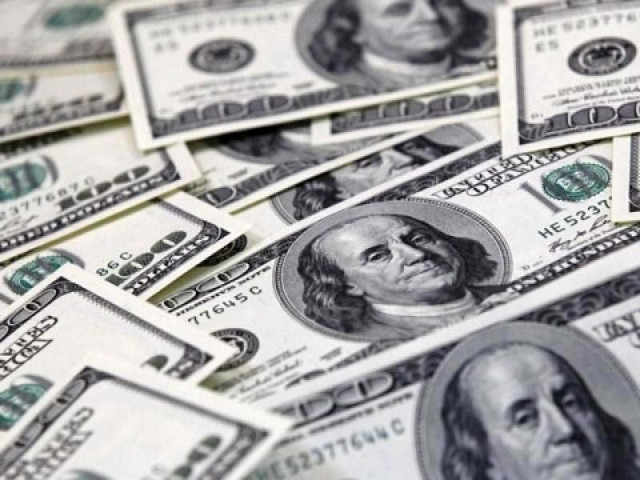Fitch assigns ‘B’ as Pakistan presses on with reforms
Ratings balance under-development and weak finances against stabilisation steps

Since September 2013, foreign currency reserves of Pakistan have more than doubled to $18.7 billion from $8.6 billion and the annual budget deficit has almost halved to 4.8% from 8.2%. PHOTO: REUTERS
Fitch Ratings has assigned Pakistan a long-term foreign and local currency issuer default rating of ‘B’ with a stable outlook, which comes on the back of economic stabilisation measures and progress on reforms agreed under the International Monetary Fund’s (IMF) loan programme.
For the short term too, the agency has put the foreign currency issuer default rating as well as the country ceiling at ‘B’.
In an announcement made from Hong Kong, Fitch said the ratings balance Pakistan’s under-development, political instability, weak public finances and history of macroeconomic volatility against stabilisation and progress on reforms achieved under the IMF’s Extended Fund Facility.
Pakistan entered a three-year, $6.2 billion loan programme in September 2013 after loose fiscal and monetary policies started threatening to destabilise the economy.
Since then, foreign currency reserves have more than doubled to $18.7 billion from $8.6 billion and the annual budget deficit has almost halved to 4.8% of gross domestic product (GDP) from 8.2%.
According to Fitch, low external liquidity is a key credit weakness for Pakistan, although it has improved. Foreign reserves at 3.8 months of external payments in the fiscal year ended June 2015 (FY15) are in line with the ‘B’ median.
The agency called the country’s external imbalances modest. In this regard, it pointed to the current account deficit that has been below 3% of GDP since 2010 and a moderate net external debt at 14.6% of GDP at the end of FY15, below the ‘B’ median of 18.9%.
Nonetheless, experience in 2013 showed how quickly Pakistan’s external finances can come under pressure as in that year the country found it difficult to finance a $2.3 billion loan maturity that it owed the IMF.
“Pakistan’s economic fundamentals more broadly remain weak on many measures, even when compared with low-rated ‘B’ range peers,” Fitch said.
Average growth in the five years to FY15 was 4.2%, below the ‘B’ median of 4.6%. Inflation averaged 8.6% over the same period compared with a median of 4.5% and was more volatile. Structural weaknesses are reflected in a low investment rate of just 15% in FY15, which constrains medium-term growth prospects. Structural credit fundamentals are also weak and Pakistan is one of the poorest countries rated by Fitch.
Factors that could drive ratings
Fitch said the main factors that could lead to a negative rating action include policy slippage that causes renewed pressure on the basic economic and financial stability, evident in a rise in inflation or the current account deficit. These also include deterioration in the fiscal position that leads to a sharp or sustained rise in government debt ratios and a sharp deterioration in political stability, sufficient to damage the economic or financial stability.
The main factors that could result in a positive rating action are a strengthened business environment supported by an improved security situation and decreased political risk, build-up of foreign reserves, sustained fiscal consolidation, strengthening of the revenue base and a reduction in government debt ratios.
Assumptions
The ratings incorporate an assumption that Pakistan’s relations with India do not deteriorate to the point of renewed armed conflict. Apart from this, the global economy is presumed to perform broadly in line with Fitch’s latest Global Economic Outlook report.
Published in The Express Tribune, September 16th, 2015.
Like Business on Facebook, follow @TribuneBiz on Twitter to stay informed and join in the conversation.



















COMMENTS
Comments are moderated and generally will be posted if they are on-topic and not abusive.
For more information, please see our Comments FAQ